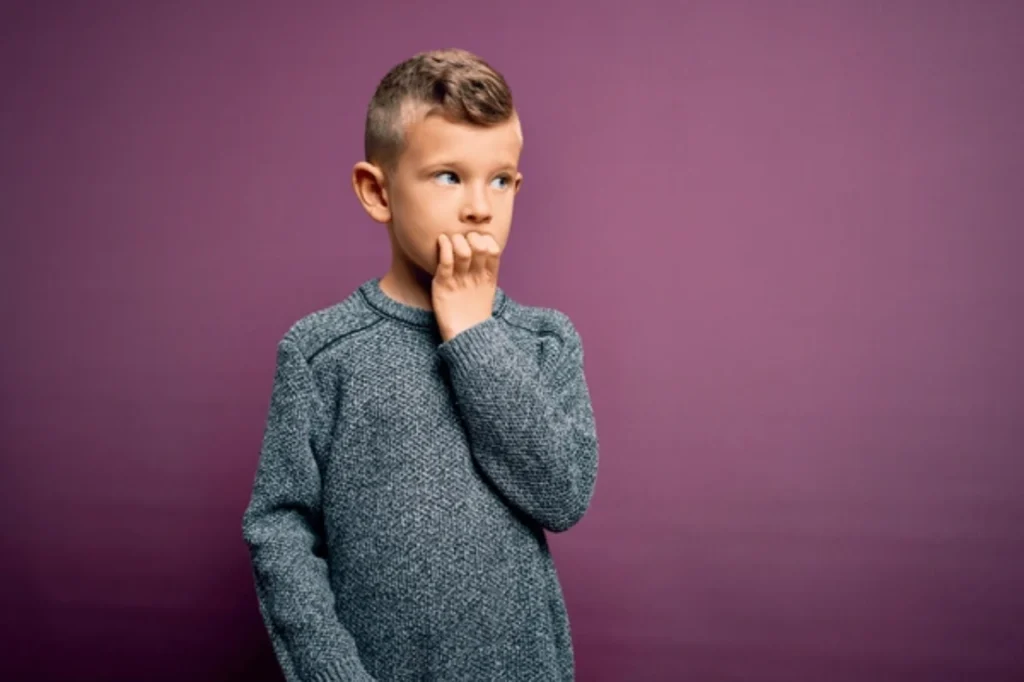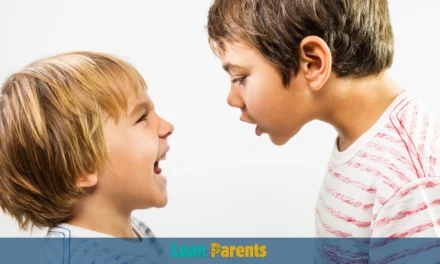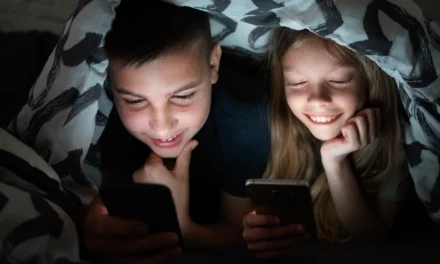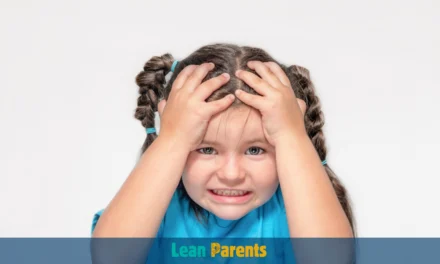Childhood can be tough, especially for kids with anxiety. Parents play a big role in helping kids feel good about themselves. Self-esteem is how a child sees their own worth and skills. It affects their happiness, confidence, and ability to bounce back.
This article looks at seven ways to help anxious kids feel better about themselves. These methods help kids face challenges and succeed.
Anxiety can run in families, making kids more likely to feel anxious if their family members do1. Imbalances in brain chemicals and hormones can also lead to anxiety in kids and teens1. Knowing what might cause a child’s anxiety helps parents support their emotional health and self-esteem.
Key Takeaways
- Discover effective strategies to boost self-esteem in anxious children
- Learn the connection between anxiety and self-worth in children
- Understand the crucial role of parents in building children’s confidence
- Explore techniques to create a supportive environment at home
- Discover the power of positive praise and problem-solving skills
Understanding Self-Esteem in Children with Anxiety

Self-esteem and anxiety are closely linked in kids. Kids with anxiety often feel unworthy, leading to fears of trying new things and trouble making friends2. Parents greatly influence how kids see themselves, through their words and actions.
The Connection Between Anxiety and Self-Worth
Anxiety can really hurt a child’s self-esteem3. Big life changes, like serious illness, can also make kids feel bad about themselves3. Low self-esteem can make it hard for kids to do well in school and make friends4.
Recognizing Low Self-Esteem Signs
Young kids often think very highly of themselves, not realizing how others see them4. But as they get older, they start to see themselves more realistically and may feel shy or self-conscious4. It’s important to spot these signs early to help kids feel better about themselves.
Impact of Parental Influence
Parents have a big role in shaping a child’s self-esteem3. Being positive and encouraging can really help4. But, negative comments from parents or others can hurt a child’s self-esteem3.
| Self-Esteem Evaluation Methods | Description |
|---|---|
| Coopersmith Self-Esteem Inventory | A widely used self-report measure of self-esteem in children and adolescents. |
| Pope’s 5-Scale Test of Self-Esteem | Evaluates self-esteem across five domains: general, social, academic, body, and family. |
| Kid-KINDL® | A self-report questionnaire that assesses health-related quality of life in children and adolescents. |
| Rosenberg Self-Esteem Scale | A widely used self-report measure of global self-worth in adolescents and adults. |
| Janis-Field Feeling of Inadequacy Scale | Measures feelings of inadequacy in social, academic, and personal situations. |
The article “Understanding Self-Esteem in Children with Anxiety” got over 134,000 views, showing how much people care about this topic2. It talked about different ways to check self-esteem, like the Coopersmith Self-Esteem Inventory and the Kid-KINDL®2. Experts shared many ways to measure self-esteem, from questionnaires to tests like the Thematic Apperception Test2.
They also discussed different scales to measure self-esteem, like the Global Scale and the Body Scale2. This shows how important it is to understand self-esteem in kids.
“Positive self-esteem protects children and adolescents from mental distress and despondency.”
– World Health Organization
The Role of Parents in Building Confidence
Parents are key in helping their kids feel good about themselves. Studies have shown for decades that kids who don’t feel confident often shy away from trying new things. They fear failure and disappointment5. But, kids with high self-esteem are more willing to face challenges, do well in school, and have fewer problems5.
To boost a child’s confidence, parents should make them feel capable and proud of their achievements. It’s important to show them that their efforts matter and that they are valued. Building self-esteem takes time, but it’s worth it5.
Building self-esteem means celebrating small wins, feeling accepted, and enjoying favorite activities. It’s about being kind, trying hard, and feeling included. It’s also about learning new things and being recognized for achievements.5
Improving self-esteem varies by age. For younger kids, simple tasks and positive feedback help. For older kids, it’s about setting goals, making decisions, and solving problems. Parents should also model good behavior and encourage community involvement5.
It’s important to praise effort, not just results. This helps build self-esteem in a healthy way.5
Children who feel loved and supported tend to have better self-esteem. Building self-esteem takes time and effort from parents6. It’s a gradual process that’s crucial for their mental health6.
Good self-esteem helps kids cope with tough times. It’s essential for their well-being6.
Parents can positively impact their child’s self-esteem by spending quality time together. Showing love and asking about their well-being also helps6.
Creating a Supportive Environment at Home
Building self-esteem in children with anxiety starts at home. It’s about making spaces for learning and creativity. Also, having consistent and positive routines is key. This helps kids feel they belong and are important in the family.
Setting Up Success-Oriented Spaces
Make your child’s bedroom or study area inviting. Add things that spark creativity, like a cozy reading spot, art supplies, and educational toys7. Make sure it’s a safe, calm place where your child can be themselves without fear7.
Establishing Healthy Routines
Start positive daily routines for structure and predictability. This could be a regular sleep schedule, homework time, family meals, and exercise7. These habits help your child feel secure, stable, and accomplished7.
Creating a supportive home environment boosts your child’s confidence. It helps them deal with anxiety and builds strong self-esteem78.
Effective Praise Techniques for Anxious Children

Praising children the right way can really boost their self-esteem and confidence. For anxious kids, how you praise them matters a lot9. It helps build their confidence and self-esteem by noticing their good actions9.
Specific praise, like saying what they did right, works better than general praise9. Praising their efforts encourages them to keep trying harder.
9 Kids are more likely to do things again if they get praised for it10. Parents often praise their kids a lot, sometimes over 50 times a day9. Using rewards, like treats, can also help make good behavior stick.
9 It’s good to praise kids more than correct them9. Simple gestures like smiles and high fives can be great ways to praise10. The right praise and rewards change with the child’s age and what they like.
10 A study found that kids who get lots of positive feedback do better in school and life10. They learn more, make better choices, and feel better about themselves.
10 There are different kinds of praise, like praising the person or their actions10. Praising the person can make kids think they’re stuck with their abilities10. But praising their efforts helps them grow and feel hopeful about the future.
By using positive reinforcement and praising the right way, we can help anxious kids feel better about themselves.
Teaching Problem-Solving Skills for Self-Esteem Boost
Teaching kids to solve problems can really help their self-esteem. By breaking down big challenges into smaller steps, they feel more in control. This method creates a positive classroom that boosts their self-esteem and resilience11.
Breaking Down Challenges
When a problem arises, tell your child to tackle it one step at a time. This makes them feel more in charge and less stressed. Getting students involved in solving problems makes them feel more in control and boosts their self-esteem11.
Celebrating Small Victories
It’s important to celebrate your child’s small wins. This boosts their self-esteem and builds resilience. For example, a girl who struggled with memorization and feeling left out became a “pet monitor.” This role gave her more confidence and helped her fit in better11.
| Problem-Solving Skills | Overcoming Challenges |
|---|---|
| Teach kids to break down problems into smaller steps | Encourage them to approach difficulties step-by-step |
| Involve them in decision-making and problem-solving | Celebrate small victories to build resilience |
| Empower them to take ownership of their solutions | Create a supportive environment for learning from mistakes |
By teaching kids to solve problems and face challenges, we help them build self-worth and confidence. These skills will benefit them for the rest of their lives111213.
“Mastering the art of problem-solving is not just about finding solutions, but about building the confidence to tackle any obstacle that comes your way.” – Jane Doe, Child Development Expert
Building Resilience Through Controlled Challenges
Helping anxious kids build resilience is key for their happiness. One great way is to let them face controlled challenges. This way, they can learn from mistakes in a safe space14. It shows them that failing is okay and doesn’t mean they’re not good enough14.
Parents can slowly introduce challenges that kids can handle. This helps them learn to cope, be kind to themselves, and see challenges as chances to grow14. This boosts their confidence and self-worth, helping them face and overcome tough times14.
- Start with small, achievable goals: Break down big tasks into smaller steps. This helps kids feel successful and builds their confidence.
- Encourage a problem-solving approach: Teach kids to find problems, think of solutions, and try different ways until they succeed.
- Celebrate small victories: Praise kids for their efforts and small wins. This boosts their sense of achievement and resilience.
- Foster a growth mindset: Teach kids that learning from mistakes is important. See challenges as chances to grow, not as failures.
By offering a safe space for challenges, parents help anxious kids grow strong. This not only boosts their self-esteem but also prepares them for future challenges with confidence14.
| Resilience Factor | Benefit |
|---|---|
| Developing Coping Mechanisms | Helps children manage stress and adversity more effectively |
| Cultivating Self-Compassion | Encourages self-acceptance and reduces self-criticism |
| Embracing a Growth Mindset | Fosters a belief that challenges can be overcome through effort and learning |
| Celebrating Small Victories | Reinforces a sense of accomplishment and boosts self-esteem |
By using these strategies, parents can help anxious kids face life’s challenges with more confidence14. Building resilience is a journey with its own hurdles. But with support, anxious kids can learn from failure and grow14.
“Resilience is not about bouncing back, but about moving forward with a deeper understanding of ourselves and a greater capacity for growth.”
Developing Social Skills and Healthy Friendships
Healthy friendships are key to boosting self-esteem and well-being in kids. Encouraging them to develop strong social skills and make meaningful connections is vital. This can greatly impact their mental health and future success15.
Peer Relationship Strategies
It’s important to help kids find friends who treat them kindly and respect them. Teach them how to handle social anxiety and make positive connections with others15. For shy kids, match them with peers who share their interests to help them make friends15.
Children with aggressive behaviors need help with emotional control and communication. This can lead to better interactions with their peers15.
Managing Social Anxiety
Social-emotional learning (SEL) programs improve academic and mental health outcomes16. Good communication skills are essential for friendships. Speech and language skills also play a big role in the quality of these relationships16.
Working together, speech-language pathologists and SEL experts can enhance social skills. This helps kids deal with anxiety in social situations16.
Friendships boost self-esteem and teach kids important life skills. These include communication, emotional control, problem-solving, and cooperation17. Encouraging kids to interact with diverse peers helps them develop healthier, more rewarding friendships17.
| Peer Relationship Strategies | Benefits of Healthy Friendships |
|---|---|
|
|
“Friendships allow children to broaden their horizons beyond the family unit, form a self-image, and develop a social support system.” – American Academy of Pediatrics15
By focusing on social skills and healthy friendships, we can help kids overcome social anxiety. This builds the confidence they need to succeed151617.
The Power of Positive Self-Talk
Positive self-talk can change anxious kids’ lives, helping their mental health and self-esteem. Research shows it boosts confidence and self-esteem18. Using affirmations can help with positive self-talk18. Starting the day with positive thoughts can cut down on negative self-talk18.
Being grateful and focusing on the good can make you happier and change your view18. But, comparing yourself to others can hurt your self-esteem18. Celebrating your wins and taking care of yourself can help too18. Believing in yourself is key to overcoming self-doubt18.
The impact of positive self-talk is huge. It’s linked to more confidence and self-esteem19. It also helps you do better and handle stress better19. It makes you more optimistic and resilient19, and more motivated19. It even reduces anxiety19.
Positive self-talk is a game-changer for self-esteem and happiness20. But negative self-talk can make you feel less confident and affect your work20. Being thankful and avoiding harsh words can help you stay positive20. It’s important to watch your self-talk and switch to positive affirmations for better mental health20.
Physical Activities That Build Confidence
Adding age-appropriate sports and physical activities can really help anxious kids feel better about themselves. Studies show that exercising can make kids feel stronger and more confident21. It helps them see their bodies in a positive light, like being strong and flexible21.
Age-Appropriate Exercise Options
It’s key to pick exercises that fit the child’s age and skill level. Exercise boosts kids’ confidence and helps them believe in their abilities21. It’s more about making exercise a habit than being a sports star21.
Team Sports Benefits
Team sports are great for anxious kids because they help with social skills and feeling part of a group22. They also make kids feel proud of their achievements22. Exercise improves self-esteem and brain function, which is good for anxious kids’ mental health22.
The U.S. recommends 150 to 300 minutes of moderate exercise a week for health22. By mixing different sports and activities, parents can help their kids feel more confident and self-assured.
Creative Expression and Self-Esteem
Encouraging creativity and self-expression can really help anxious kids feel better about themselves. Creative activities let kids show off their talents, solve problems, and be themselves23.
Toronto’s many outdoor spots are perfect for activities that help kids feel more confident. Doing art can make kids more confident as they learn new things and explore their creativity23.
- Art schools in Toronto teach kids many artistic skills, like drawing and sculpting23.
- These art classes help kids grow their artistic skills and learn to solve problems, boosting their confidence23.
- Working on art projects together helps kids feel better about themselves and improves their social skills23.
Art gives kids a safe place to be creative without worrying about making mistakes. It helps them develop a positive mindset and a strong sense of self23. By celebrating their unique views, kids learn to believe in themselves and express their thoughts freely23.
| Benefit of Creative Expression | Impact on Self-Esteem |
|---|---|
| Engaging multiple senses simultaneously | Enhances cognitive skills and awareness |
| Developing fine motor skills | Contributes to physical development |
| Fostering a sense of pride and accomplishment | Boosts self-confidence |
| Encouraging self-expression and problem-solving | Improves critical thinking and creativity |
| Providing a supportive environment | Develops essential skills for future success |
In conclusion, creative activities and self-expression can change anxious kids’ lives. They help kids build confidence, learn important skills, and celebrate their uniqueness. By supporting these creative outlets, parents and teachers can help kids overcome anxiety and succeed2324.
“Art empowers children to express themselves, solve problems, work with others, and believe in their abilities, enhancing confidence and self-esteem.”23
Setting and Achieving Realistic Goals
Helping anxious kids set and reach goals can really boost their confidence. Use the SMART goal framework to guide them. This makes goals clear, measurable, and achievable25. It also helps them stay motivated and celebrate their wins25.
SMART Goal Framework for Kids
When teaching kids to set goals, focus on realistic ones. For example, a health goal might be to lose 1-2 pounds a week25. A career goal could be learning new skills before getting a promotion25. A personal goal might be to read one book a month25.
Make sure these goals match what the child values and enjoys. This boosts their motivation and purpose26.
Progress Tracking Methods
It’s important to track and celebrate progress. Use simple tools like checklists or journals to show kids their achievements25. This builds pride and confidence in their abilities26.
Encourage kids to think about how far they’ve come. Acknowledge both small and big wins. This can greatly improve their self-image and well-being27.
By helping anxious kids set and achieve goals, you unlock their potential. Guide them with structured frameworks and celebrate their progress26. This builds resilience and self-belief, helping them thrive27.
Managing Perfectionism in Anxious Children
Perfectionism is a big challenge for anxious kids. They want everything to be perfect and get upset when it’s not28. It’s key to teach them that being perfect is not needed for growth.
Parents can help by focusing on effort and progress, not just perfect results28. This approach helps reduce anxiety. It’s also good to let kids feel their emotions and make their own choices28.
Teaching kids how to handle their anxiety is crucial29. Talking about the outcomes of giving up or trying again can help them see things differently29. By accepting imperfection, kids can build strength and self-confidence, leading to success in the long run29.
FAQ
What is the connection between anxiety and self-esteem in children?
How do parents influence their child’s self-esteem?
What are the key elements of a supportive home environment for building self-esteem?
How can parents effectively praise their anxious children to boost self-esteem?
What strategies can parents use to teach problem-solving skills and boost self-esteem?
How can controlled challenges help build resilience in anxious children?
What role do healthy friendships play in building self-esteem?
How can positive self-talk help boost self-esteem in anxious children?
What types of physical activities can help build confidence in anxious children?
How can creative expression contribute to self-esteem in anxious children?
What strategies can parents use to help their anxious children set and achieve realistic goals?
How can parents help their anxious children manage perfectionism and embrace imperfection?
Source Links
- 10-strategies-for-building-self-esteem-in-your-child-with-anxiety
- Importance and usefulness of evaluating self-esteem in children – BioPsychoSocial Medicine
- Raising low self-esteem
- How to Address Low Self-Esteem in Kids vs Adults – Start My Wellness, Ferndale, MI
- How Parents Can Build Self-Esteem and Raise Confident Kids
- Self-Esteem and Mental Health | Guide For Parents
- Create a Positive Environment | Natalie Trusdale
- How to build confidence: creating an environment that nurtures and inspires
- Praise, encouragement and rewards
- How to Motivate Your Kids Without Praise or Rewards
- 7 Ways to Foster Self-Esteem and Resilience in All Learners – Brookes Blog
- Top Self-Esteem Activities for Kids to Boost Their Confidence
- The impact of training problem-solving skills on self-esteem and behavioral adjustment in teenage girls who have irresponsible parents or no parents
- A Powerful Combination – FearLess
- Promoting Social-Emotional Development: Positive Relationships
- The Power of Friendship: Strengthening Social Skills through Speech | Everyday Speech
- Encouraging Friendships and Healthy Social Interactions
- The Power of Positive Self-Talk – Simone Knego
- The Power of Self-Talk: Boosting Confidence and Performance
- Council Post: How To Use Positive Self-Talk To Improve Your Self-Esteem
- The Transformative Impact of Exercise on Self-Esteem
- 5 Ways Exercise Can Boost Your Self-Esteem | Exercise and Self-Esteem
- Boosting Kids’ Self-Esteem Through Art And Creative Expression — Hello Lovely Living
- 6 Ways Children’s Art Classes Boost Creativity and Self-Esteem — Children’s Developmental Services
- The Art of Achievement: Setting Realistic Goals for Success | Sage Mental Wellness
- How To Set Goals For Building Self-Confidence & Fulfillment
- How can goal setting improve your confidence?
- Highly Sensitive Children: Perfectionists — Child Development and Parent Consultation
- Perfectionism Might Be Hurting You. Here’s How to Change Your Relationship to Achievement – Harvard Summer School





